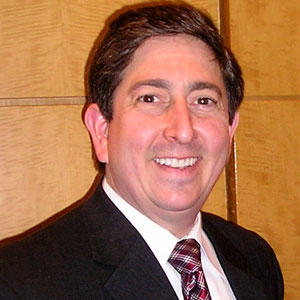
Former U.S. Senator Arlen Specter (R-PA) put partisanship aside to support federal funding for biomedical research. And, while battling cancer himself, he spoke about the National Institutes of Health (NIH) and its crucial role in finding treatments and cures.
“Health is our nation’s number one asset. Without your health, you can’t do anything. I believe medical research should be pursued with all possible haste to cure the diseases and maladies affecting Americans. I have said many times that the NIH is the crown jewel of the federal government—perhaps the only jewel of the federal government.”
Specter’s statement was a testament to NIH’s, and the National Cancer Institute’s (NCI’s) in particular, extraordinary commitment to ensuring that the United States is a leader in health and science research for patients. Through breakthroughs and initiatives like the Biden Cancer Moonshot Initiative, the NCI remains the leading force in cancer research.
A New Leader for a New Era
In October 2017, the U.S. Senate approved the appointment of Norman E. “Ned” Sharpless, MD, as the 15th director of the NCI. He is a practicing oncologist, inventor with 10 patents, and a prolific author of more than 150 scholarly articles.
At his confirmation, Sharpless said, “I am honored and humbled to assume this role at NCI, the world’s premier cancer research institution. This is an exciting moment for cancer research, as new discoveries and technological improvements are accelerating our progress against cancer, an ancient and unrelenting foe.”
This year alone, some of the research breakthroughs reported include:
Overall cancer death rates decreased in men, women, and children for all major racial and ethnic groups: from 2010–2014, rates decreased for 11 of the 16 most common types of cancer in men and 13 of the 18 most common types of cancer in women, including lung, colorectal, female breast, and prostate cancers.
Enrollment opened for a unique, nationwide, precision medicine clinical trial, NCI-COG Pediatric Molecular Analysis for Therapy Choice (Pediatric MATCH), to explore targeted therapies for children and adolescents with solid tumors with specific genetic mutations. Pediatric MATCH will look at drugs, therapies, and outcomes from eight different studies in a new way.
A study is identifying genes necessary in cancer cells for immunotherapy to work and then why they stop as tumor cells develop resistance. Working with a melanoma tumor cell line, researchers used a gene editing technology that “knocked out” individual genes in cancer cells, allowing response to T cells that may play a role in tumor destruction.
Partnering With Other Agencies
As those advancements move forward, new partnerships are being developed at the NIH as well. In an unprecedented arrangement, the institute and 11 biopharmaceutical companies launched the Partnership for Accelerating Cancer Therapies, a five-year public-private research partnership with $215 million dedicated to the Cancer Moonshot program. This cross-agency initiative will focus on cancer and attempt to find novel ways to help patients.
“This new public-private partnership is a significant step forward in the battle against cancer and a real boost to the potential of immunotherapy,” said Acting Health and Human Services Secretary Eric Hargan. “We are excited for this partnership, which will strengthen efforts already underway across HHS.”
How ONS and Oncology Nurses Are Involved
All of this is with an eye to evidence-based research, for improved quality care in a coordinated-provider environment where nurses are critical. The role of the nurse has evolved over the years, and the NCI has recognized and encouraged the contributing responsibilities of the nurse in cancer care.
In ONS’s health policy agenda, federal funding for research at the NIH and the NCI continues to be a priority. Nurses understand the need to access quality care and the need for clinical trials to find those breakthroughs.
ONS’s position on access to care is that “everyone, regardless of age, gender, race, or ethnicity, has the opportunity to participate in clinical trials for cancer prevention and comprehensive cancer care, including those coordinated by nurses educated and certified in oncology nursing, allowing for continuing informed consent, patient education, and advocacy.”
Even in this heightened political climate, most members of Congress know that cancer research is too important to play politics with and continue to come together to allocate increased funding for the NIH. ONS brings nursing leaders to Washington, DC, and they speak truth to power about patient symptom management education. As the most trusted healthcare providers, nurses are making a difference in care.






